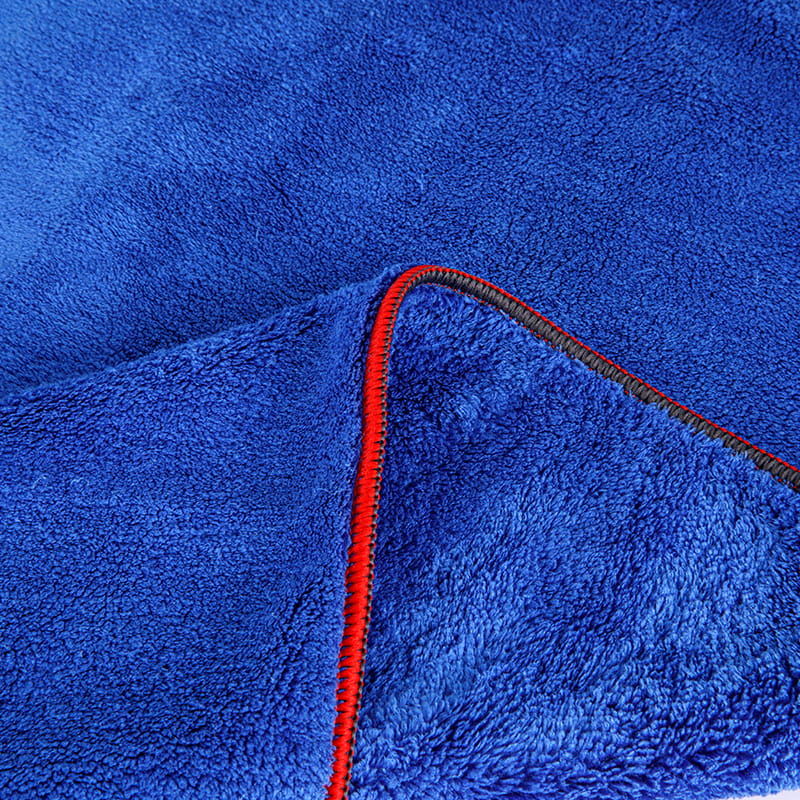We are a national high-tech enterprise. At present, there are many kinds of self-woven and cooperatively processed fabrics, including microfiber warp-knitted towel cloth, weft-knitted towel cloth, coral fleece, etc.
When selecting a beach towel with UV protection for enhanced sun safety, users should consider several factors to ensure they get a product that effectively shields them from harmful ultraviolet (UV) rays. Here are key considerations:
UPF Rating: UPF ratings indicate the effectiveness of a fabric in blocking UV radiation. A UPF rating of 50+ is considered excellent, offering a high level of protection. Ensure that the beach towel you choose clearly specifies its UPF rating to align with your sun safety requirements.
Material: Synthetic materials like polyester and nylon are specifically engineered to resist UV penetration. These fabrics create a formidable barrier against harmful rays, making them a preferred choice for beach towels designed with UV protection in mind. The inherent properties of these materials contribute to a more robust defense against sun exposure.
Fabric Type: The tightness of a fabric's weave is critical in determining its UV protection capabilities. Microfiber, for instance, boasts a tightly woven structure that minimizes the passage of UV rays through the material. Choosing towels with such advanced fabric types ensures a denser shield against the sun's harmful radiation.
Color: Darker colors serve a dual purpose in UV protection. Not only are they aesthetically pleasing, but they also absorb more UV radiation, thereby reducing the amount that reaches the skin. When selecting a beach towel, opt for deep, dark colors to maximize the UV-blocking effect.
Construction: Innovative construction techniques elevate the UV protection performance of a beach towel. Look for features like double-layered designs or specialized weaves that enhance the towel's ability to create a robust barrier against UV rays. Such construction methods contribute to a durable and effective sun protection solution.
Treatment Technology: Cutting-edge technologies incorporated into beach towels can further enhance UV protection. UV-absorbing chemicals or inhibitors embedded in the fabric add an extra layer of defense against sun damage. Choosing towels with these advanced treatments ensures a comprehensive approach to sun safety.
Durability: The durability of UV protection features is crucial for long-term effectiveness. A high-quality beach towel should withstand regular use, exposure to water, and repeated laundering without compromising its ability to block UV rays. Select towels that prioritize both durability and sustained UV protection.
Size and Coverage: The size of the beach towel directly influences the coverage it provides. Larger towels or those equipped with hoods offer extended protection, shielding more areas of the body from direct sunlight. Consider your personal preferences and the level of coverage required for your outdoor activities.
Ease of Care: Practicality in maintaining UV protection is essential. Ensure that the beach towel retains its UV-blocking capabilities after washing and exposure to outdoor elements. Easy care and maintenance contribute to the longevity of UV protection features, ensuring reliable sun safety over time.
Comfort: Comfort is a non-negotiable aspect of beach towels. Despite prioritizing UV protection, select towels that offer a luxurious feel and optimal comfort during use. Softness, thickness, and overall tactile experience contribute to a positive user experience.
1PK 700GSM high density coral fleece car towel/blanket towel/beach towel

1PK 700GSM high density coral fleece car towel/blanket towel/beach towel


 English
English Espaol
Espaol русский
русский عربي
عربي 简体中文
简体中文
















